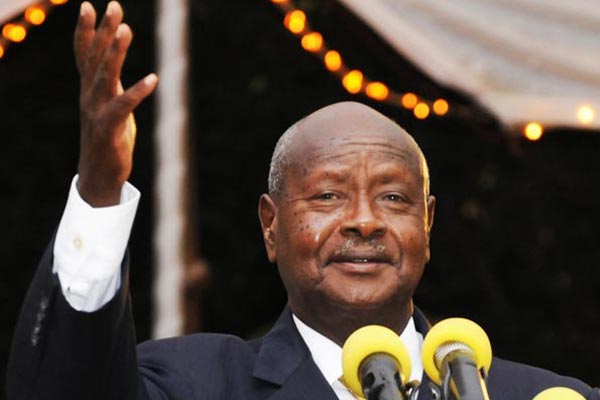
Ugandan President Gen. Yoweri Museveni has renewed his call for the African people, especially Christian leaders, to embrace science and crop technology if the continent is to reap substantial dividends from its vast natural resources and advance socio-economically.
The Ugandan leader, whose background is deeply-rooted in the Anglican faith and a mix of progressive socialist and capitalist ideologies, was addressing a large congregation of African-Christian leaders and foreign dignitaries from Europe and North America at the Oct. 8 annual National Prayer Breakfast. The Parliamentary event, modeled after the annual US National Prayer Breakfast, precedes Uganda s Independence Day celebrations.
President Museveni has been steadfast in his promotion of science-led solutions to low levels of industrialization and human development indices (HDIs) in Africa. This lends credence to his unwavering support for new and advanced sciences, such as human immunization against killer diseases, animal vaccination, artificial insemination of livestock, crop-biofortification for better nutrition, and crops genetically engineered to provide resistance against pests, diseases and climate-induced challenges like drought, frost and floods.
I don t like the helplessness mentality. God helps those who help themselves, said the President in a direct challenge to those who depend on prayer and discourage reliance on hard work and the contribution of science and technology to improve livelihoods.
Yet in Africa, Christians want to depend only on prayer after prayer, loudly asking God for more as if He is deaf, whereas their continent is already the most-endowed with immense natural resources, on the planet, he said.
This year s breakfast, the 19th in a series, took place in Kampala. Guests included US-born David Muldrow Beasley, the global executive director of the United Nations World Food Program (WFP), and delegations from Nigeria, Ethiopia, Somalia, Kenya, DR Congo, Switzerland, Austria, Germany and the United States.
The Ugandan Head of State, renowned for his passion for science and technology-led human development, was dismayed that Africa is the only continent absent in the theater of science, technology and innovation (STI)-developments.
Africa, he said, hasn t taken full advantage of a Third World-wide STI revolution that took root in 1970s, enabling underdeveloped regions like China to advance in the socio-economic transformations of their societies via science-led agri-industrial revolutions.
Uganda s science-based legislation, the National Biotechnology and Biosafety Bill, has for the past nearly 20 years moved in a ping-pong fashion. Even when the President fully supported it, legislators were highly-influenced by anti-science activists not to approve it. Parliament finally passed the law last week, opening the door to the commercialization of GMO crops.
Since 1990, when the Uganda National Council for Science and Technology was created, it has been run under the Ministry of Finance, Planning and Economic Development. The placement frequently amazed visitors to Uganda, who asked how a science agency could be run by a finance ministry.
It was only in 2016 that President Museveni established a Ministry of Science, Technology and Innovations (MoSTI), allowing Uganda to join Kenya, Tanzania, Rwanda, Burundi and Ethiopia the other East African Community (EAC) states that already have fully-fledged science, technology and research ministries.
Peter Wamboga-Mugirya is the director of Communication & Partnerships with the Science Foundation for Livelihoods & Development (SCIFODE) in Uganda and a 2015 Alliance for Science Global Leadership Fellow.
